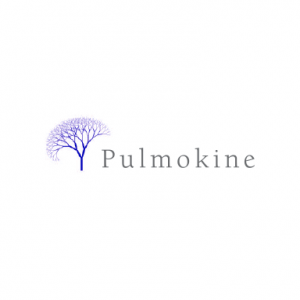 Pulmokine recently announced that it has entered into an investment agreement with Broadview Ventures for $1 Million. Resulting proceeds will be utilized to develop PK10571, Pulmokine’s lead candidate, in Phase 1 clinical trials to address patients suffering from pulmonary arterial hypertension (PAH).
Pulmokine recently announced that it has entered into an investment agreement with Broadview Ventures for $1 Million. Resulting proceeds will be utilized to develop PK10571, Pulmokine’s lead candidate, in Phase 1 clinical trials to address patients suffering from pulmonary arterial hypertension (PAH).
The CEO of Pulmokine, Lawrence S. Zisman, stated in a press release: “Preclinical results of our inhaled PDGF receptor inhibitor are quite compelling, showing a meaningful decrease in pulmonary pressures in animal models of PAH. Importantly, by interfering with the PDGF receptor pathway, our lead candidate has the potential to address an underlying cause of PAH, not merely to alleviate its symptoms.”
“We are very pleased to expand our cardiovascular portfolio with the addition of Pulmokine’s PAH program which we believe has the potential to be a truly disease-modifying treatment for patients with this life threatening disease. We are especially pleased that this promising science is also being supported by the NIH,” noted Christopher Colecchi.
PK10571 is a strong PDGF receptor kinase inhibitor thought to treat PAH since it reduces and ceases pulmonary cell proliferation. Its pre-clinical studies have shown that PK10571-based treatments reduce pulmonary artery systolic pressure, which is a key measure of PAH treatment. Pulmokine aims to submit an Investigational New Drug application to the United States Food and Drug Administration in the 4th quarter of 2015, and start its Phase 1 trials right after the clearance of that very same application.
[adrotate group=”7″]
The advancement of PK10571 is also being funded through a phase II SBIR grant from the NIH, and a Stage B Vascular Interventions and Therapeutic Advances (VITA) contract from the National Heart, Lung, and Blood Institute (NHLBI), which is a division of the NIH.
Read More Recent News About PAH
A recent study published in the journal Arthritis Research & Therapy analyzed different prediction algorithms for the efficient diagnosis of pulmonary arterial hypertension (PAH) in patients with systemic sclerosis. The study is entitled “A comparison of the predictive accuracy of three screening models for pulmonary arterial hypertension in systemic sclerosis.” It is estimated that the 3-year survival rate of systemic sclerosis patients with associated PAH is around 50% and it has been shown that an early screening and treatment of PAH is usually associated with a better prognosis.

